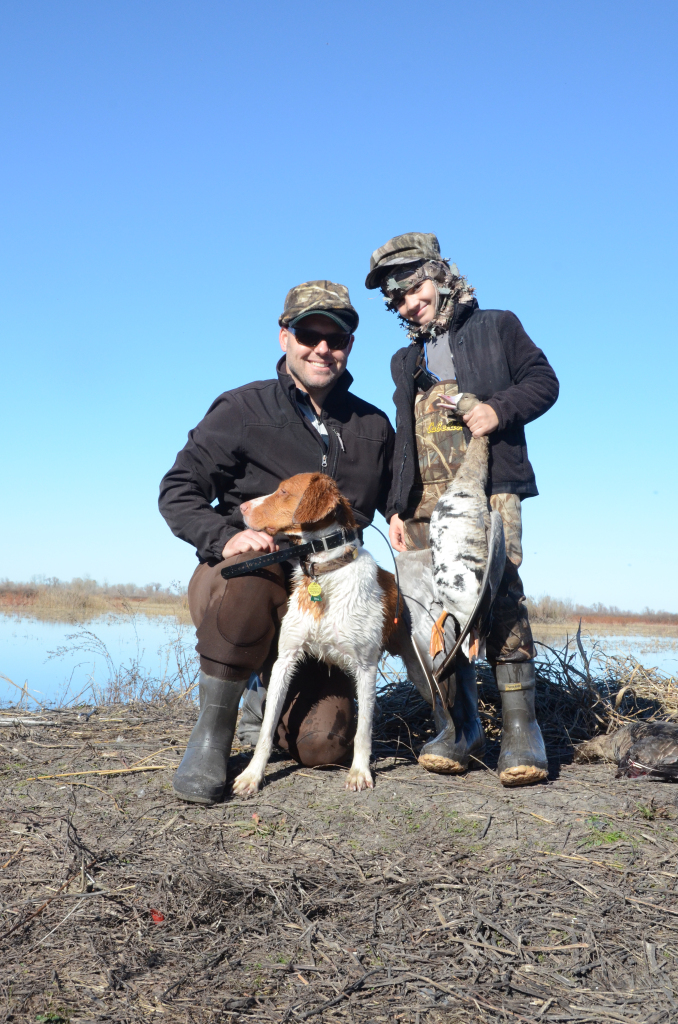
Planning for Youth Waterfowl Hunting Days

by Carrie Wilson
2-1-2018
Website
Question: My son is asking me to take him out on the special youth waterfowl hunt next weekend. We have everything we need like waders, camo, shotguns and so forth. But I don’t have reservations anywhere and we don’t have access to a duck club. What are my public waterfowl hunting options? I want to make it a good experience for him. (John W., Sacramento)
Answer: As you noted, the upcoming Youth Waterfowl Hunting Days are this weekend, Feb. 3-4. Many state areas will be open throughout the greater Sacramento Valley including Yolo Bypass, Little Dry Creek and Gray Lodge wildlife areas, in addition to Delevan, Colusa and Sacramento national wildlife refuges. Each of these public hunt areas will be open for both hunt days while Sutter National Wildlife Refuge is open only on Sunday. The Howard Slough and Llano Seco units of Upper Butte Basin Wildlife Area and Joice Island will be closed.
The various hunt areas are part of the CDFW reservation system with applications accepted 17 days in advance and reservations issued by random drawing. However, many areas will have openings for hunters to sign in and immediately go hunt. Gray Lodge, Yolo Bypass, Grizzly Island and Mendota will fill unreserved spaces on a first-come, first-served basis. Additionally, youth hunters can take advantage of openings created when reservation holders do not show up.
Federal regulations require that hunters must be 17 years of age or younger to participate. They must also be accompanied by a non-hunting adult 18 years of age or older. All youth hunters must have a valid junior hunting license and Harvest Information Program Stamp. A Federal Duck Stamp is required for hunters 16 years of age and older. The daily bag and possession limits apply along with all other waterfowl regulations for the 2017-18 waterfowl season. The regulations can be found online at www.wildife.ca.gov/hunting/waterfowl.
You mention that you want to make it a good experience for your son. With that, here is one last word of advice. If your son gets too cold or too tired and wants to call it a day, then call it a day. Many parents get overly excited and enthusiastic and end up pushing their kids to stay out far too long. Listen to your child. We want our young hunters to finish every hunt on a good note, with everyone looking forward to the next adventure.
What’s the Most Common Hunting Violation?
Question: At the recent International Sportsmen’s Exposition in Sacramento, I stopped by the California Sportsmen’s Theater to hear the California Department of Fish and Wildlife leadership panel discussion. During the presentation, I heard the Chief of Law Enforcement say that the most common citation issued for fishing violations is fishing without a license. This piqued my curiosity as to what the most commonly cited hunting violation is. (Steven P., Elk Grove)
Answer: Thank you for taking the time to stop by and hear the panel presentation at the show. This question came up amongst a couple of wildlife officers recently who took a couple guesses before running the query to get the statistical facts. They speculated that the most common hunting violation would be either hunter trespassing or having a loaded long gun in a motor vehicle. Both of these violations are far more common than they should be, since they both require a conscious decision and show a dangerous disregard for safety and ethics. Ultimately, the statistics show the latter – having a loaded long gun in a vehicle – is the most common.
The vast majority of hunters and anglers are law abiding. Only a small percentage hunt or fish in violation. In 2017, California wildlife officers issued 11,693 citations, 139 of which were for having a loaded rifle or shotgun in or on a vehicle. This troubling reality is reckless and extremely dangerous to everyone in or around the vehicle. Accidental firearm discharge within a vehicle will always have significant consequences – damage to property, loss of life, or both. It is the goal of our hunter education program and department to see this senseless violation avoided. We encourage everyone to be sure to unload their firearms before climbing in or upon any vehicle to avoid risk of a tragedy, or at minimum, a citation.
Carrie Wilson is a marine environmental scientist with the California Department of Fish and Wildlife. While she cannot personally answer everyone’s questions, she will select a few to answer each week in this column. Please contact her at CalOutdoors@wildlife.ca.gov.
Website Hosting and Design provided by TECK.net